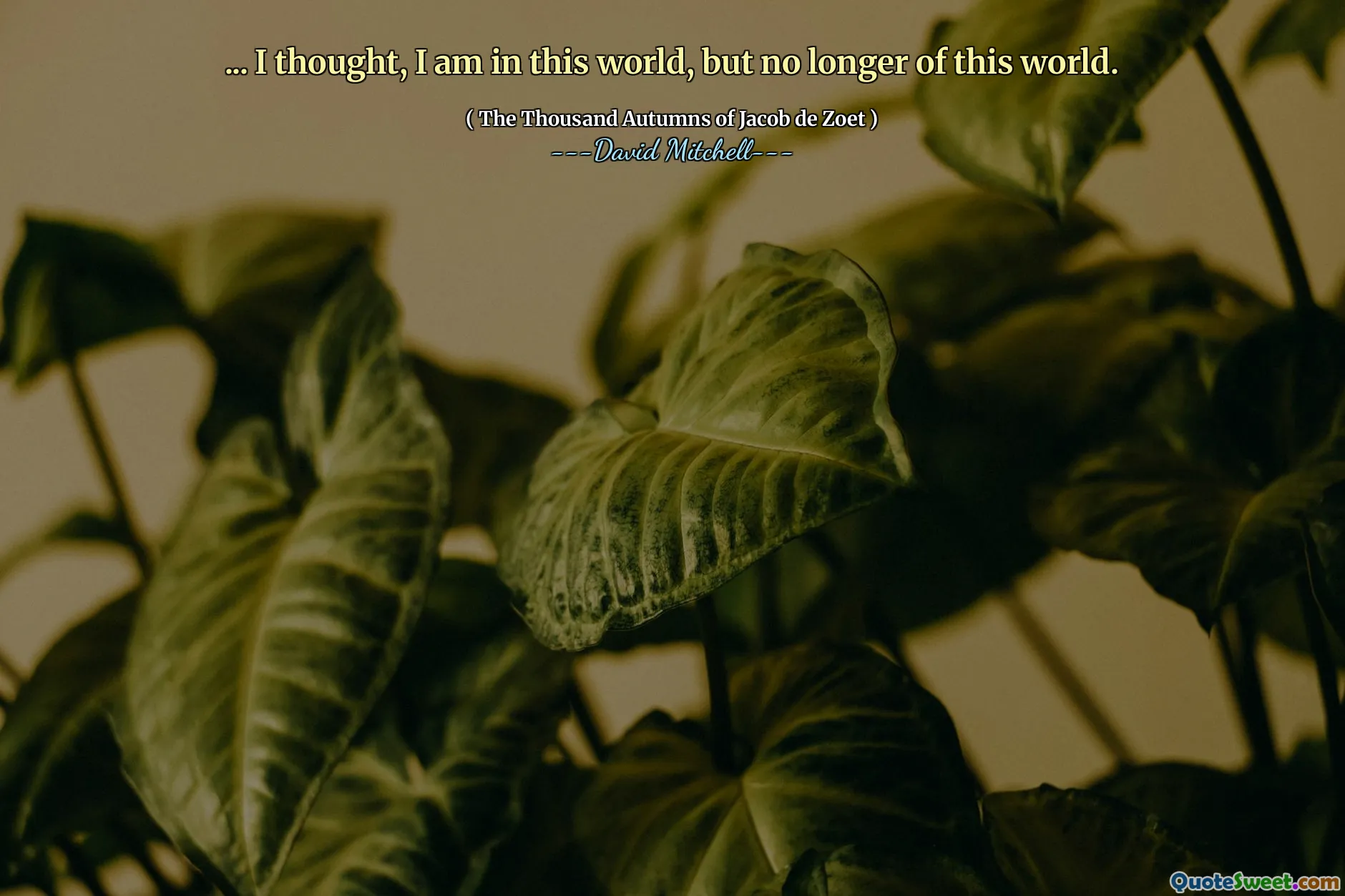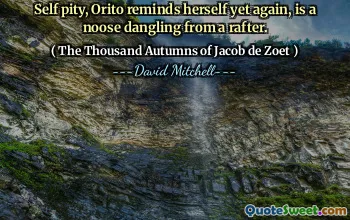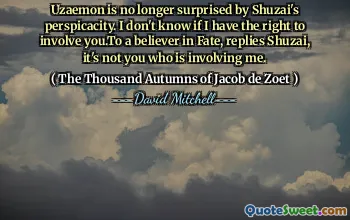
... I thought, I am in this world, but no longer of this world.
In "The Thousand Autumns of Jacob de Zoet," author David Mitchell explores themes of belonging and detachment through the character's reflections on their place in the world. The quote, "I thought, I am in this world, but no longer of this world," encapsulates a sense of existential separation, where the individual feels physically present yet spiritually distanced from their surroundings and society.
This notion of being part of the world while simultaneously feeling alienated resonates deeply throughout the narrative. It highlights the internal struggle of grappling with one's identity amidst external challenges and demonstrates how personal experiences can lead to a profound sense of isolation, even in familiar environments.











